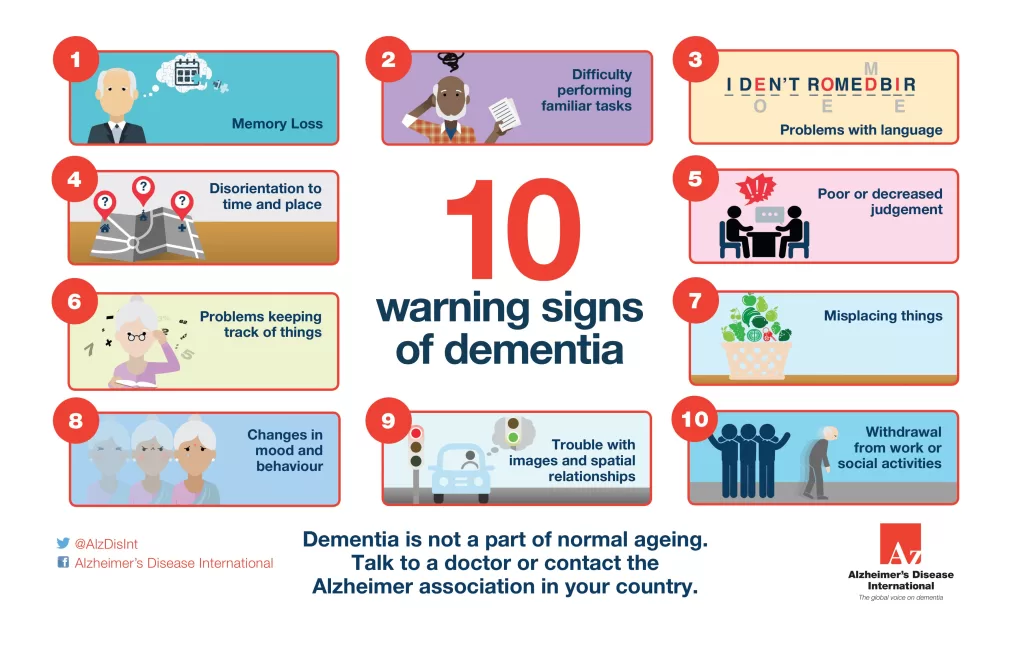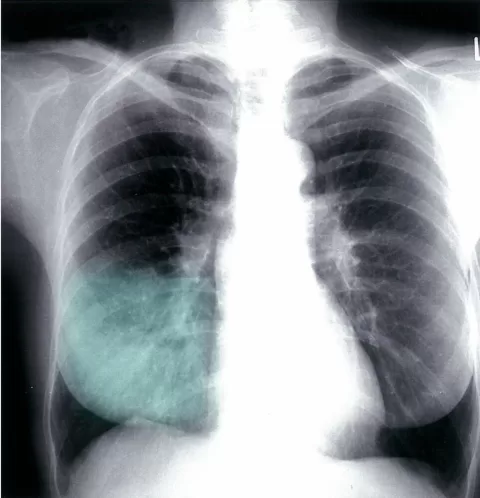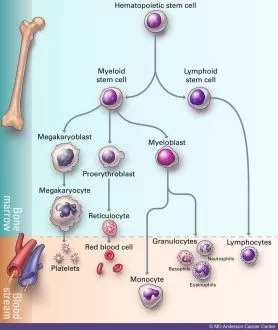Early warning signs of dementia are crucial indicators that can help in the early detection and management of this condition. Common dementia symptoms often include memory loss, cognitive decline, and difficulty with familiar tasks, which can be distressing for both the individuals affected and their families. As we age, it’s natural to notice occasional forgetfulness; however, when these moments begin to interfere with daily life, it raises concerns about potential neurological issues. Alzheimer’s warning signs can manifest in various ways, such as confusion about time and place, personality changes, or difficulty understanding visual information. Recognizing these early indicators can enhance dementia awareness and encourage timely intervention, ultimately improving the quality of life for those at risk.
Understanding the initial indicators of cognitive impairment is essential to addressing potential health concerns. Signs of cognitive decline may not always be obvious, but vigilance in noticing alterations like forgetfulness or unusual behavior can lead to earlier evaluations and interventions. Many individuals may find themselves grappling with episodes of confusion or struggles with tasks they once performed effortlessly, which could be linked to the onset of dementia. Heightened awareness of these subtle changes can foster a supportive environment for those experiencing these challenges, ensuring they receive the necessary care and resources. By familiarizing oneself with these early signs, the journey through cognitive health can become more manageable and guided.
Understanding Dementia: Definition and Impact
Dementia is a broad term encompassing various symptoms that impact cognitive functionality significantly and disrupt daily life. It is essential to recognize that dementia is not a specific disease but rather a syndrome associated with the decline in mental abilities, including memory loss and impaired reasoning skills. With over 55 million people living with dementia globally, as reported by the World Health Organization, it becomes imperative to understand its implications on individual lives, families, and society as a whole.
The cognitive decline inherent in dementia can lead to various challenges, including the loss of focus, communication difficulties, and problems with problem-solving. People with dementia may also experience changes in personality and emotional control, which further complicates interpersonal relationships and lived experiences. Understanding these aspects can foster greater dementia awareness, ensuring that those affected receive the necessary support and care.
Recognizing Early Warning Signs of Dementia
Awareness of the early warning signs of dementia can dramatically alter the course of the disease. Common symptoms include significant short-term memory loss, which manifests not only as forgetting minor details but as a failure to recall recent events. An individual struggling to remember a recent gathering or conversation may be exhibiting early signs of cognitive decline, warranting further evaluation. It’s crucial to take note of such changes early on, as they can be indicative of underlying issues that may be manageable with timely intervention.
Alongside memory loss, other warning signs include word loss, where individuals frequently substitute words in conversation or experience difficulty expressing thoughts clearly. Such symptoms may seem trivial or momentary, but when they become persistent, they encompass larger cognitive impairments related to dementia. Recognizing these signs early promotes proactive strategies for managing symptoms and can lead to better outcomes for individuals and their families.
The Link Between Memory Loss and Dementia
Memory loss is often one of the first and most noticeable signs people associate with dementia. While occasional lapses in memory can occur at any age, persistent forgetfulness that begins to interfere with daily life is a cause for concern. For example, forgetting appointments, frequently misplacing items, or struggling to remember recent events are not merely signs of aging; they can reflect underlying cognitive problems.
It’s crucial to differentiate between normal aging processes and dementia symptoms. A person might forget a name but will typically recall it soon after, whereas someone with dementia might forget names and events altogether, indicating a deeper issue. By identifying memory loss as a potential early symptom of dementia, individuals can begin seeking medical advice and support, ensuring that necessary interventions can lead to better management of the condition.
Related Symptoms of Dementia: More Than Just Memory Loss
Memory loss is often accompanied by other dementia symptoms that can complicate diagnosis and understanding. Cognitive decline may manifest through difficulties with language and communication, as individuals may struggle to find the right words or follow conversations. Moreover, executive function issues can arise, weakening one’s ability to plan, organize, and manage multiple tasks effectively. This multifaceted symptomatology underscores the necessity for comprehensive assessments by healthcare professionals.
Additionally, personality changes should not be overlooked, as a sudden shift in social interactions or interests can also indicate the onset of dementia. Some individuals may withdraw from social situations or lose interest in activities that once brought them joy. These changes often create emotional distress for both the individual and their loved ones, highlighting the need for increased dementia awareness and support mechanisms. Understanding the broader range of symptoms can help break the stigma surrounding dementia and encourage timely action.
The Importance of Early Diagnosis and Support
Early diagnosis plays a pivotal role in managing dementia effectively. Timely intervention can open doors to treatment options that may slow the disease’s progression and provide supportive strategies for both patients and caregivers. Recognizing the early warning signs of dementia, such as confusion about time and place or sudden changes in judgment, allows individuals to seek medical advice sooner rather than later.
Beyond medical intervention, emotional and psychological support is crucial for those facing new cognitive challenges. Family engagement and community resources can significantly enhance the quality of life for individuals experiencing dementia symptoms. It is essential to foster an environment of understanding where people feel comfortable discussing their symptoms and receiving the necessary support. Awareness and education are key to combating stigma and ensuring that those affected have the resources they need.
Common Types of Dementia and Their Symptoms
Dementia encompasses various types, each with distinct characteristics and symptoms. The most common type, Alzheimer’s disease, is marked by memory loss and confusion but also presents with personality changes and difficulty in planning. Vascular dementia, on the other hand, often follows a stroke and leads to varied cognitive decline related to blood flow issues in the brain. Understanding these types and their peculiar manifestations can aid individuals and families in recognizing symptoms more accurately.
Lewy Body Dementia and Frontotemporal Disorders represent other forms of dementia that can, respectively, provoke hallucinations or drastic changes in behavior and personality. Differentiating between these forms is crucial for treatment, as they may respond differently to therapies. By gathering knowledge on the types of dementia, individuals can better advocate for themselves or their loved ones, ensuring appropriate care and support mechanisms are in place.
Support Strategies for Dementia Patients and Caregivers
For both individuals experiencing cognitive decline and their caregivers, support strategies are vital. Implementing memory aids such as labeled items or planners can help alleviate some of the confusion associated with early dementia symptoms. Establishing a consistent daily routine can also ease anxiety and provide structure, making it easier for individuals to navigate daily tasks.
Moreover, caregivers play a crucial role in this journey; they must take care of their emotional and physical health while supporting someone with dementia. Educating caregivers about the symptoms and challenges associated with the disease can better prepare them to handle difficult situations. Support groups and counseling may also provide a welcome reprieve, allowing caregivers to share experiences and receive guidance from those facing similar challenges.
Dementia and Emotional Well-being
Mental health plays a critical role in the overall well-being of individuals dealing with dementia. Sudden onset depression, for instance, can be a silent early warning sign of cognitive decline. It’s important for families and healthcare providers to remain vigilant and responsive to emotional changes, as addressing mental health can significantly improve quality of life. Therapeutic interventions, including counseling and medication, can help manage symptoms of depression, thus providing a more supportive environment for individuals at risk.
Additionally, fostering social connections and engaging in leisurely activities can also mitigate feelings of isolation that often accompany dementia. Social interaction not only promotes cognitive engagement but also nurtures emotional support. Encouraging family gatherings, participating in community programs, and seeking shared activities can help maintain a sense of belonging and purpose in individuals facing these cognitive challenges.
Future Directions in Dementia Research and Treatment
Research is continuously evolving, striving to uncover the underlying mechanisms driving dementia and possible treatments. Many ongoing studies focus on identifying early biological markers of dementia, which could lead to preventive strategies or novel therapies that effectively target the progression of cognitive decline. Advancements in neuroimaging and genetic research could provide more precise diagnostic tools, enabling earlier treatment and better outcomes for patients.
Furthermore, multidisciplinary approaches combining pharmacological treatments with lifestyle modifications appear promising in managing dementia. This involves physical exercise, diet, mental stimulation, and social integration, all of which contribute significantly to brain health. By understanding what promotes brain vitality, the medical community can devise comprehensive care plans that enhance both cognitive resilience and overall quality of life for those affected by dementia.
Frequently Asked Questions
What are the early warning signs of dementia to watch for?
Some of the early warning signs of dementia include short-term memory loss, difficulty with word finding, struggles with multitasking, and repetitive questioning. If you notice these symptoms in yourself or a loved one, it may be beneficial to consult a healthcare professional.
How can I differentiate between normal aging and dementia symptoms?
While occasional memory lapses can be a normal part of aging, more significant symptoms such as consistently forgetting recent events, misplacing items frequently, or changes in personality could indicate potential dementia symptoms. Observing whether cognitive changes interfere with daily life is key.
What is the relationship between memory loss and dementia awareness?
Memory loss is one of the most prominent early warning signs of dementia. Heightened dementia awareness helps individuals recognize these symptoms sooner, encouraging them to seek evaluation and potentially improve outcomes through early intervention.
Are Alzheimer’s warning signs different from other dementia symptoms?
Many Alzheimer’s warning signs overlap with general dementia symptoms, such as memory loss and confusion about time or place. However, Alzheimer’s may specifically show more pronounced issues with memory, language, and visual perception as it progresses.
What should I do if I notice cognitive decline in a loved one?
If you observe cognitive decline or early warning signs of dementia in a loved one, it’s essential to encourage them to seek medical evaluation. Early diagnosis can lead to better management of symptoms and access to support services.
How can I support someone experiencing the early signs of dementia?
Supporting someone with early signs of dementia involves being patient, offering reminders for daily tasks, encouraging social interaction, and providing a safe environment. Gentle prompts to visit a healthcare provider can also be beneficial.
What types of dementia are associated with the early warning signs?
Early warning signs can occur in various types of dementia, including Alzheimer’s disease, vascular dementia, Lewy body dementia, and frontotemporal disorders. Each type may present with unique symptoms, but memory loss and confusion are common across all.
Can depression in older adults indicate early dementia symptoms?
Yes, sudden onset depression in older adults can be an early warning sign of dementia. It’s important to take such changes seriously as they could reflect cognitive decline or the onset of dementia symptoms.
What lifestyle changes can help delay the early warning signs of dementia?
Adopting a healthy lifestyle that includes regular exercise, a balanced diet, mental stimulation, social engagement, and good sleep hygiene may help delay cognitive decline and lessen the impact of early warning signs of dementia.
How significant is it to notice difficulty with multitasking as an early warning sign of dementia?
Difficulty with multitasking may signal executive function issues associated with early warning signs of dementia. If this becomes a persistent concern, it is advisable to consult with a healthcare provider for further evaluation.
| Warning Sign | Description |
|---|---|
| Short-term memory loss | Inability to recall recent events or experiences, such as forgetting a movie watched yesterday. |
| Word loss | Frequent difficulty in finding the right words during conversations, often leading to incorrect word substitutions. |
| Difficulty multitasking | Struggles with managing tasks that were previously manageable, indicating executive function issues. |
| Repetition | Frequently repeating questions or stories unawarely can signal cognitive decline. |
| Personality changes | Loss of interest in family, friends, or hobbies, indicating potential dementia progression. |
| New sleep behaviors | Sudden instances of sleepwalking or talking during sleep that were not previously common. |
| Worsening sense of direction | Difficulty navigating familiar locations may be a warning sign of cognitive issues. |
| Depression | Sudden onset of depressive symptoms in older adults can indicate underlying dementia. |
| Confusion about time and place | Losing track of time or not knowing where you are can be concerning signs. |
| Difficulty with visual or perceptual tasks | Problems recognizing objects or judging distances may arise. |
| Financial missteps | Struggles with managing finances can be an early indicator of cognitive decline. |
| Changes in judgment | Poor decision-making and increased susceptibility to scams are warning signs. |
| Misplacing things | Regularly losing items or placing them in unusual locations may indicate problems. |
| Misusing items | Using everyday items inappropriately can suggest cognitive decline. |
| Hallucinations | Experiencing delusions or seeing things that aren’t there can indicate dementia. |
Summary
Early warning signs of dementia are critical to recognize for early intervention and management. Symptoms such as short-term memory loss, word loss, and personality changes can indicate cognitive decline that warrants medical evaluation. These signs, if noticed in oneself or a loved one, should prompt a consultation with a healthcare provider, as early diagnosis is key in effectively managing the condition.
The content provided on this blog (e.g., symptom descriptions, health tips, or general advice) is for informational purposes only and is not a substitute for professional medical advice, diagnosis, or treatment. Always seek the guidance of your physician or other qualified healthcare provider with any questions you may have regarding a medical condition. Never disregard professional medical advice or delay seeking it because of something you have read on this website. If you believe you may have a medical emergency, call your doctor or emergency services immediately. Reliance on any information provided by this blog is solely at your own risk.






